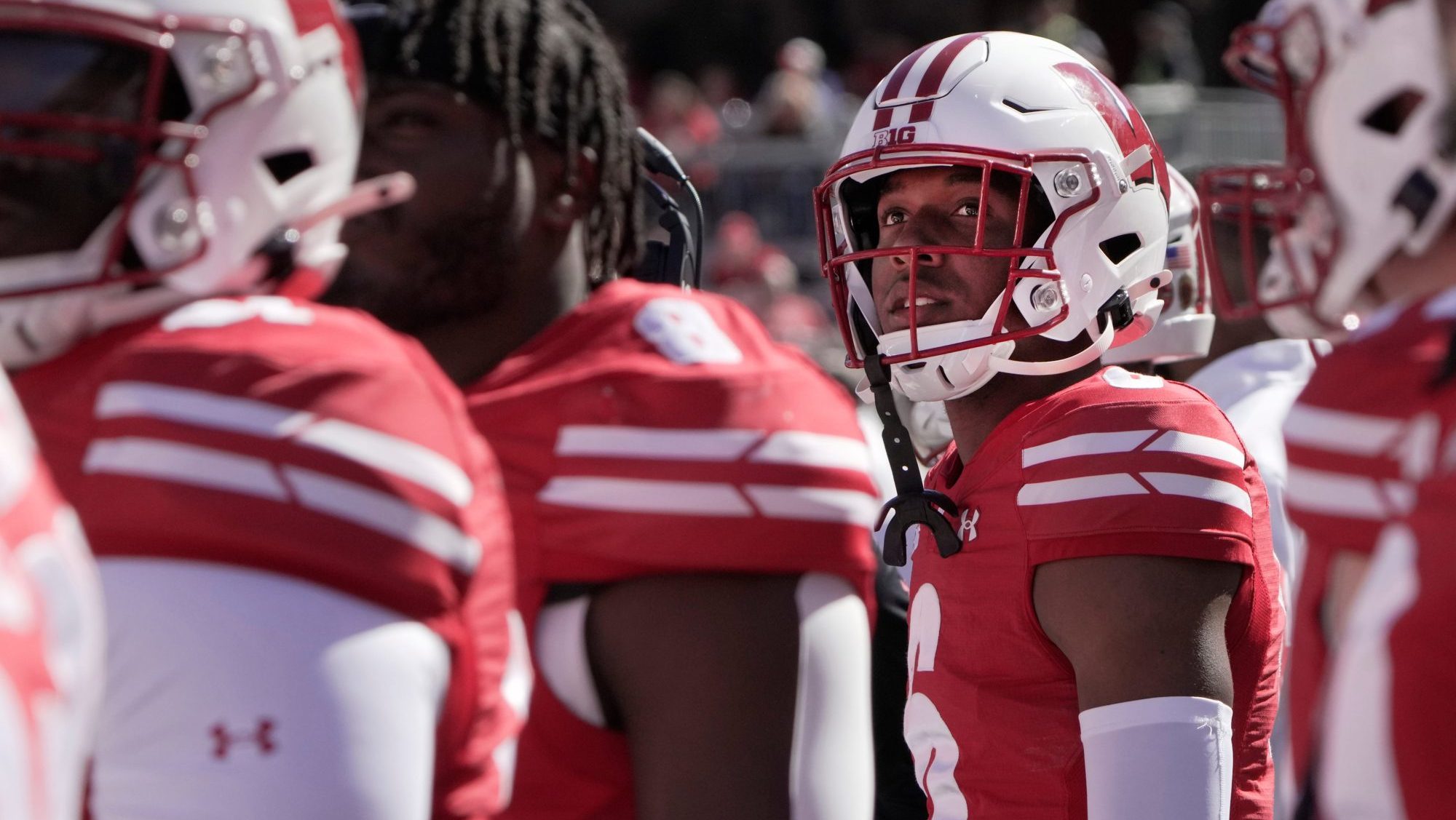The Badgers aren’t letting Xavier Lucas become a Cane without some parting shots.
Earlier this week, the University of Wisconsin cornerback announced he would depart Madison for Miami—despite, according to Wisconsin, having signed a revenue-sharing agreement with the school. Lucas made that decision without entering the transfer portal, the NCAA’s mandated mechanism for college athletes who want to switch schools in between seasons.
Wisconsin now says Lucas didn’t just break his word, but that he and Miami broke the rules.
The university issued a statement Saturday night saying that his two-year NIL (name, image, and likeness) agreement with Wisconsin Athletics “included substantial financial compensation” and “remains in effect and enforceable.” Wisconsin also accused Miami of tampering, saying it had “credible information indicating impermissible contact between Xavier and University of Miami football program personnel prior to Xavier’s request to enter the transfer portal.”
The Big Ten Conference backed up Wisconsin in a statement of support: “As student-athletes become active participants in revenue sharing, it is critical that agreed-to obligations be respected, honored, and enforced.” The Big Ten called the alleged evidence of tampering by Miami “very troubling” and called for “substantive governance reform.”
Miami has not yet responded to a Front Office Sports request for comment.
The tampering allegations provide a new wrinkle to what was already a knotty situation.
Lucas’s attorney, Miami-based lawyer Darren Heitner, posted on X/Twitter earlier Saturday—before the tampering allegations—that Wisconsin’s failure to submit Lucas’s information to the transfer portal despite his request was a breach of NCAA bylaws. The school says it didn’t enter Lucas in the transfer portal because he had signed a binding two-year agreement Dec. 2. Heitner told Yahoo Sports the player requested a transfer due to recently learning that his father has a “serious, life-threatening illness.” Lucas is a South Florida native.
Heitner, who was hired by Lucas in early January and represents athletes throughout the country (including others at Miami), told FOS over the phone, “I haven’t seen or heard anything that shows any form of tampering.”
After he has a chance to digest the allegations, Heitner said, he’ll determine whether there are grounds to pursue a potential FERPA violation case. (FERPA is a federal privacy law related to the protection of student data and records.)
In an additional tweet shortly after speaking to FOS, Heitner went after Wisconsin’s claims: “NCAA rules do not currently allow institutions to provide compensation in exchange for an athlete’s NIL.” Moreover, he wrote, “the agreement says it is subservient to NCAA rules.”
Student transfers have become a hot-button issue this past year, as athletes have taken advantage of new rules that allow them to switch schools without sitting out a year. In many cases, an athlete’s explicit reason for transferring is to pursue richer NIL deals—or because promised NIL deals failed to materialize.
The NIL paradigm is set to shift once again if and when the proposed House v. NCAA settlement takes effect, allowing schools to share revenue directly with players while introducing new rules for the disbursement of funds. President Biden’s Department of Education issued guidance Thursday that Title IX rules must apply to NIL and to any potential revenue sharing, but the Trump Administration is expected to roll back some Title IX protections.
“Mandating so-called equal pay when not all sports generate equal revenue will force some colleges out of athletics altogether,” Sen. Ted Cruz (R., Texas) said. “I predict this scheme will die on Jan. 20.”






![[Subscription Customers Only] Jun 15, 2025; Seattle, Washington, USA; Botafogo owner John Textor inside the stadium before the match during a group stage match of the 2025 FIFA Club World Cup at Lumen Field.](https://frontofficesports.com/wp-content/uploads/2026/02/USATSI_26465842_168416386_lowres-scaled.jpg?quality=100&w=1024)
![[Subscription Customers Only] Jul 13, 2025; East Rutherford, New Jersey, USA; Chelsea FC midfielder Cole Palmer (10) celebrates winning the final of the 2025 FIFA Club World Cup at MetLife Stadium](https://frontofficesports.com/wp-content/uploads/2026/02/USATSI_26636703-scaled-e1770932227605.jpg?quality=100&w=1024)









